What if learning new skills and navigating your career was as simple and individualized as your experiences using smart apps in your personal life?
A key reason there is such a disparity between our personal and professional digital experiences is because collecting and managing data about employees is more complex than configuring an app. To leverage advanced, intelligent tools to elevate the talent experience, we need data that is simpler, clearer, commonly understood, and applicable to both the work and workers—that data element is skills.
Employee and job data reside in various organizational systems; they are not always accurate or current; and historically they’ve been used by companies to manage employees, not for employees to access and use themselves. Many organizations have used the job or position as the unit of measurement to organize data, and information about employees is related to the jobs they hold or perhaps the competencies related to the job. However, job and position data are often unreliable or incomplete, and competencies are typically very descriptive and not easy to use in intelligent applications.
To confidently use data to inform and enhance the talent experience, the data must be generated and curated using a rigorous, systematic, and disciplined process. Using skills data that are not only designed and defined specifically for the organization, but also confirmed and validated by employees and managers, enables the integrity, validity, and utility of the data to inform the human talent experience. Skills data allow us to more effectively connect information about work and workers, opening up new possibilities for a more agile and versatile talent experience.
Technology enables the use of skills
Skills-driven talent technology is an enabler of these data-informed experiences. Without the right framework, policies, and tools in place to enable the effective use of skills data, they’re just another data source.
There has been an explosion of skills tech fueling learning experience platforms, talent marketplaces, career growth and development tools, skills-based talent acquisition, and even skills-based compensation. The heart of these solutions relies on skills data, which are organized by skills taxonomies and ontologies and are connected to people, roles, jobs, learning content, development opportunities, gigs, projects, and more.
Organizations that use skills data in talent practices not only elevate the employee experience; their leaders are also able to utilize rich, reliable, accessible, and connected data to gain insights and greater visibility to the capabilities of their workforce. These insights allow leaders to identify and address current skills gaps and anticipate future skill needs. Utilizing skills that have been defined and structured the same way—regardless of whether they are connected to people, roles, jobs, or content—allows for more complex analysis and enables data-informed talent decisions.
Transitioning to skills-based talent practices
At the heart of a successful skills transformation is the employee. While skills technology can infer the skills a person possesses, the accuracy of those inferences must be curated and fine-tuned by each person. Employees are the owners of their own skills profile, and the quality and validity of the employee data determines the accuracy and relevancy of connections and recommendations for learning, development, mobility, and growth.
Much like data we provide in our personal lives to improve the experience we have in the intelligent apps and tools we use every day, the power over the data in an employee’s skills profile should remain with the person. We must continue to prioritize and respect the needs of data privacy, transparency, and oversight, while also providing a clear value proposition for employees to create and maintain a robust profile of themselves at work.
Using skills data in all or even just one of your talent practices is not a simple transition. In addition to data privacy, consider these essential components for a successful skills transformation:
-
- Recognizing what experience or process would benefit from a skills-based approach, and then which technology would enable that change.
- Navigating the shift in mindset and behaviors that accompany this change when employees and leaders are empowered by more transparent, personalized, and accessible data.
- Establishing governance and guidance for skills content, usage, integrity, and the ethical use of data.
- Clearly communicating to employees about what information exists about them and how it is being used in compliance with relevant regulations.
Skills are still skills as we have known them for decades—from technical and functional skills to human and relational skills—but now they’re being used with greater intention and impact. The difference today is that skills now serve a new purpose as the data element enabling a connected and informed talent experience. Skills data is the common thread needed to fuel intelligent, advanced technology for talent decisions and to provide an elevated experience for today’s digitally sophisticated employees and leaders.
Author Bio
Jennifer Burnett, PhD, is a Principal at TiER1 Performance where she provides guidance and actionable solutions to enterprise leaders seeking to advance their talent processes, technology, and people practices. With deep HR experience driving innovation and excellence in talent management, talent acquisition, people analytics, and strategic workforce planning, Jennifer’s mission in all engagements is to inspire and connect employees and positively impact business results.




